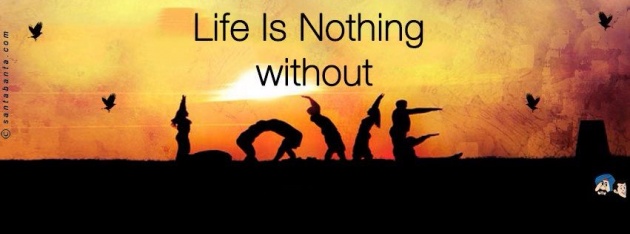This article is a little different than the others I have written on this blog. The objective here at the Love Life Learning Center has always been to help bring as much love into the world as possible through learning.
Nevertheless, there are people in the world who are trying to cope with the absence of love in their lives either by choice or circumstance, temporarily or long-term.
In an effort to try to be helpful to this group of people, I’ll talk about the psychological state of living without love and I’ll offer a few tips that may make this state of mind at least understandable, if not easier to cope with. First and foremost, living without love requires psychological defenses. Why?
Because we as human beings are all born with a need for love built into our natures. Left in its natural state, this need for love will generate feelings from joy to frustration and hurt depending upon the extent to which the need is actually satisfied. For a lot of people, childhood is the last time in their lives when their need for love was experienced in its original unadulterated state.
This article is a little different than the others I have written on this blog. The objective here at the Love Life Learning Center has always been to help bring as much love into the world as possible through learning.
Nevertheless, there are people in the world who are trying to cope with the absence of love in their lives either by choice or circumstance, temporarily or long-term.
In an effort to try to be helpful to this group of people, I’ll talk about the psychological state of living without love and I’ll offer a few tips that may make this state of mind at least understandable, if not easier to cope with. First and foremost, living without love requires psychological defenses. Why?
Because we as human beings are all born with a need for love built into our natures. Left in its natural state, this need for love will generate feelings from joy to frustration and hurt depending upon the extent to which the need is actually satisfied. For a lot of people, childhood is the last time in their lives when their need for love was experienced in its original unadulterated state.

What generally happens is interpersonal experiences over the course of our lives, starting with the experiences we have in our families of origin, ‘shape’ and ‘transform’ the ways in which we will experience this inborn need for love going into adulthood. Some adults experience their need for love in pretty much the same ways they experienced it as children. For other adults, the feelings that are usually generated from their need for love have long since been muted. Everybody else is somewhere between these two extremes.

Most people are subjected to some feelings generated from their unsatisfied need for love. Unfortunately, the worlds we live in are not always giving of love and kindness. In too many instances an ‘undefended’ need for love left exposed to the harder elements of life will result in unnecessary disappointment, hurt, and pain. People with a need for love that cannot be satisfied for whatever reason at this time in their lives have no other option than to developpsychological defenses against the feelings emanating from their unsatisfied need for love.
Broadly defined, psychological defenses are the things we think, feel, and do that can stop another set of undesirable thoughts, feelings, or actions from taking place. Even though most psychological defenses are practiced in a habitual manner, sometimes with very little consciousness, ultimately with a little self-awareness we do have a say about which defenses we practice. The thing to remember about psychological defenses is, we all practice them to one degree or another, and to practice them in a constructive and healthy manner is the objective.
You’ll know that your personal use of psychological defensiveness has become self-destructive when what you are ‘practicing’ is no longer under your control. In other words, your psychological defenses are in control of you instead of the other way around. At which point you’ll probably experience a conflict between what you really want or need and what you’ll let yourself have.


If the circumstances of your life require that you live without feeling the effects of an absence of love in your life, there are a bunch of defenses tailor made for living without love. Most people who are trying to cope with the loss or absence of love will use one or more of the following defenses: stay distant from people you could feel chemically attracted to; stay busy; keep yourself distracted; deny the importance of love in your life; numb yourself with alcohol and/or drugs; tell yourself that people are not to be trusted; and ignore everything related to love.
By the way, remember that your psychological defenses generally work in two directions at the same time, they diminish the impact of what’s coming at you from the outside world (another person’s need for love), and diminish the impact of what’s coming at you from the inside world (your own need for love).
When conditions in your life have changed and you’re in a better position to allow yourself to feel your need for love and the needs of the people around you, you’ll be withdrawing from these psychological defenses. It’s sort of like giving up a stifling habit you’ve gotten used to that once had a purpose but have now outgrown.
A beautiful Ghazal for love.................................
Comments? Welcome. Dr. Tom Jordan



